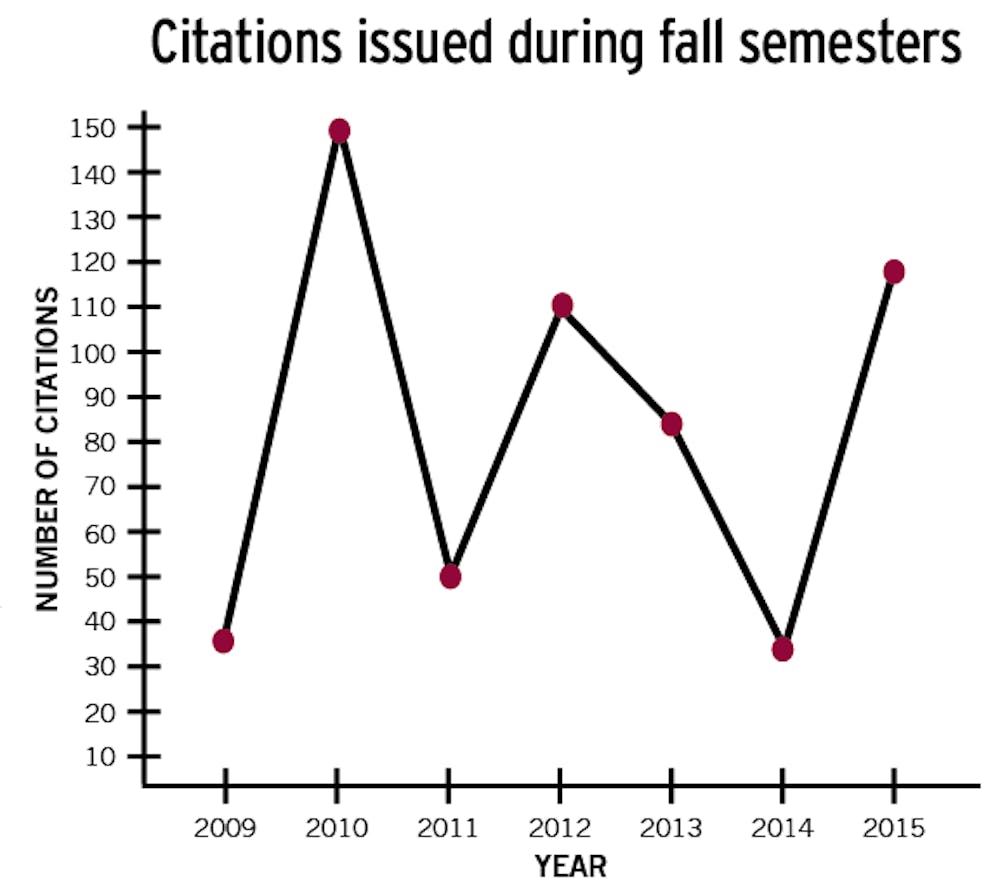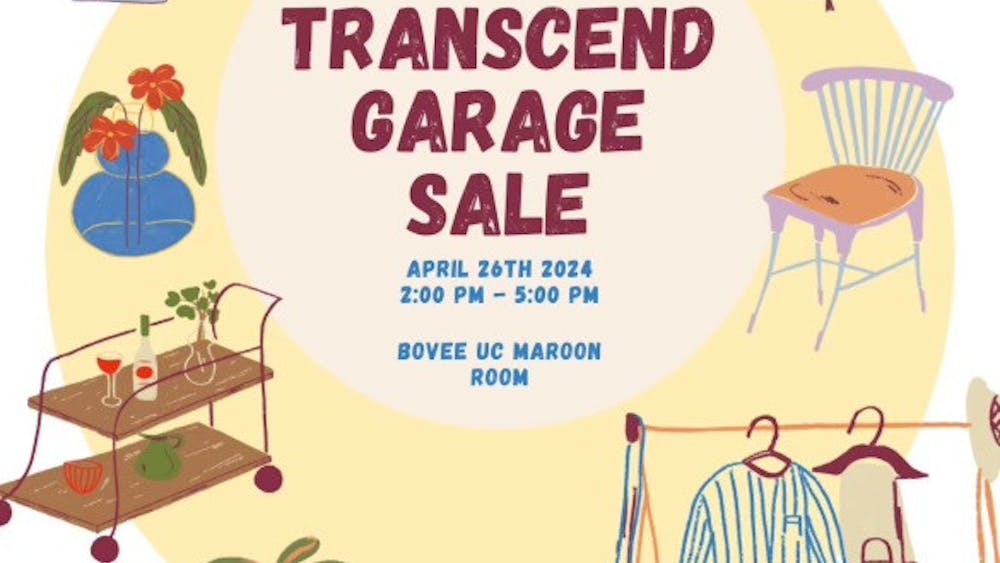City sees increase in nuisance party citations
A typical "Thirsty Thursday" this fall ended up costing Patrick Wivo and his roommates $1,300.
Just after midnight, the Ortonville alumnus was drinking with about 20-30 people at his house when Mount Pleasant Police officers knocked on the door. Wivo and one of his roommates were cited for hosting a nuisance party. That ticket cost them $350 each. The two were also charged $300 each by United Apartments, which owns their house.
“The party wasn’t that big,” Wivo said. “I think one of our neighbors called on us because our music was loud.”
Wivo and his roommates are part of the largest number of nuisance party citations written by the Mount Pleasant Police Department since 2010. Since August, 53 hosting citations and 65 attending have been given out. A party that took place before winter break at Franklin Village resulted in one hosting and 40 attending citations, however none of these were CMU students, police said.
“When we told the cop we live there, we thought we would just get a warning like usual,” Wivo said. “They were really cool with us, but they told us the city is cracking down, and they have to ticket us if they get called –- no warnings anymore.”
In 2010, Welcome Weekend was busier for police, said Mount Pleasant Police Officer Jeff Browne. Fall 2015 shares a similar story. During this year’s Welcome Weekend, 192 people were cited or arrested.
“We’ve asked for more of our citizens' involvement in keeping our community safe,” Browne said. “They’ve asked, ‘When is enough enough?’ There are certain houses we go to once every weekend.”
In lieu of increasing ticket fines, the Mount Pleasant City Commission told police to issue fewer warnings and more tickets, said City Manager Nancy Ridley. This is because of an increase in noise and trash complaints from neighbors who aren’t students.
“They’re fearful of (partying) getting to an uncontrollable level again,” she said. “Raising the fine was something brought up (at a commission meeting), but we wanted to see if this would work before we had to do that.”
In Browne’s experience, it has been challenging to determine if the level of enforcement is working. Officers have begun keeping track of how many times they are called to houses, because there are some repeat offenders. This allows different officers to know each home’s history, he said, in case additional measures need to be taken. Although rare, students can spend the night in jail for hosting a nuisance party.
Ian Elliott, Student Government Association’s city/student liaison, told Browne at a November meeting that enforcement has been inconsistent. Elliott’s job is to communicate between SGA and city government. He said he has heard from multiple students that they are confused about what they can do.
“They always tell us what we aren’t allowed to do, but they don’t say anything about how we can be responsible and still have a party,” he said. “I’ve been at parties where the students will put up a fence to not let people in, but they still get a ticket.”
Local law enforcement and city staff walk through student neighborhoods twice a year, once before Welcome Weekend and once at the end of finals week to give students an outline of expectations.
Browne said tickets are generally given out when there is loud music playing and trash outside of the house. This can include furniture outside. He said tickets can be issued for people on the sidewalk in front of the house, sometimes spilling into the road, as well as for underage drinking and assaults.
“It also includes fighting, people urinating in public and being destructive,” Browne said. “There are 21 different things listed on the ordinance.”
Though the ordinance provides thorough guidelines, Browne said enforcement is based more on individual officer’s discretion.
“If I’ve been to your house once and I show up and you’re watching a game, I don’t want to hold you accountable for that,” he said. “If I’ve been to your house five times because you’re having these off-the-wall parties, is that enough to write the ticket? That’s where we’re using discretion.”
Landlords have also gotten more involved. Police notify landlords when their rental homes becomes a problem for residents, Browne said. More and more landlords are hiring private security companies to check up on houses. Wivo remembers a line in his lease that said he and his roommates aren’t allowed to throw parties.
While he complied and paid his ticket, Wivo said the “crack down” seems like too much.
“(The cops) said they thought (ticketing us) was stupid, because it’s a waste of time, and we’re just trying to have fun,” he said. “We have definitely toned it down ever since.”





